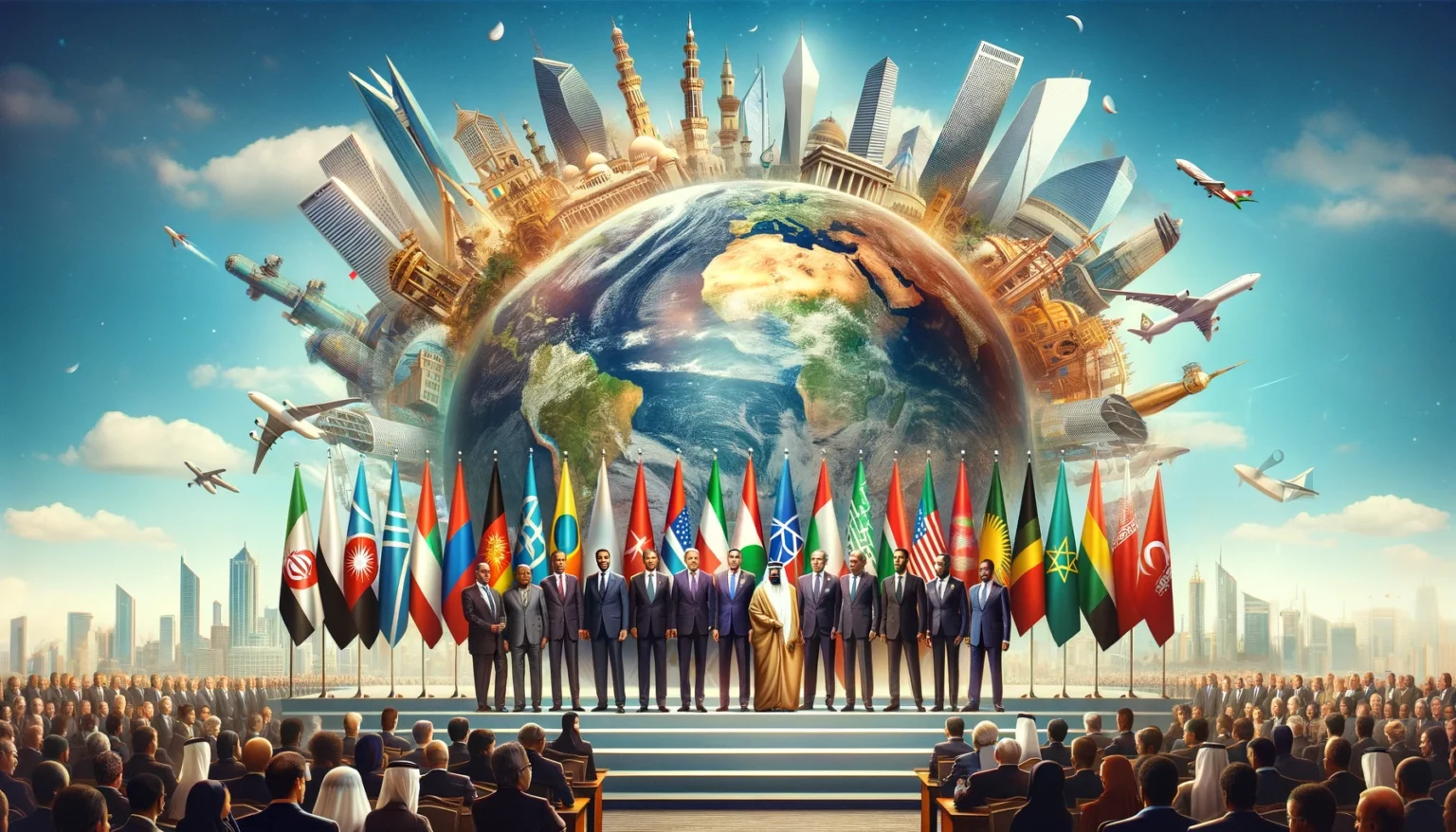With the inclusion of Egypt, Ethiopia, Saudi Arabia, the United Arab Emirates, and Iran in early 2024, the BRICS group has significantly expanded its influence on the global stage. Representing 46% of the world’s population and 29% of global GDP, this enlargement underscores the group’s growing importance. As several BRICS+ nations face pivotal elections in 2024, questions arise about the future trajectory and strategic advantages of this diverse coalition. Jean-Joseph Boillot, Associate Research Fellow at IRIS specializing in the Indian economy and emerging markets, provides insight into these developments.
Political Shifts and International Agendas
The year 2024 marks a critical electoral period for many BRICS+ countries. Russia anticipates a new mandate for Vladimir Putin, while South Africa could see a historic defeat for the African National Congress (ANC). In India, Narendra Modi has secured a narrow victory, and new elections loom in Iran and Ethiopia following the death of Ebrahim Raissi. Boillot notes that the heterogeneity of BRICS+ means that elections could impact the group’s international agenda, as seen with Argentina’s pro-American shift under Javier Milei.
Despite these potential disruptions, a strong internal consensus among most Global South nations persists, aiming to liberate themselves from the Western-dominated Bretton Woods system. The recent inclusions of Saudi Arabia, the UAE, and Egypt illustrate a trend toward multi-alignment rather than anti-Western confrontation. This approach mirrors India’s balanced foreign policy, which maintains close ties with both the United States and Russia. For now, elections in developing countries do not appear to threaten this consensus, although the situation in Russia remains an outlier.
Economic Expansion and Strategic Strengths
Since its expansion, BRICS+ has not evolved into a dominant force capable of challenging Western economies outright. Instead, the coalition represents a flexible alliance of Southern countries seeking greater recognition in international forums traditionally dominated by the West. Russia’s leadership of the BRICS presidency, due to Brazil’s G20 commitments, highlights the group’s evolving dynamics. Preparations for the Kazan summit have revealed an agenda lacking substantial progress, particularly regarding proposals like a common currency.
Rather than fostering a bifurcated global order, BRICS+ appears to be navigating a South-North confrontation within the existing international framework, particularly institutions like the IMF and World Bank. The inclusion of Saudi Arabia, Iran, and the UAE has bolstered BRICS’ influence over critical resources like raw materials, food, energy, and metals. However, this poses challenges, as non-producer countries within BRICS+ may struggle to balance interests with producer nations. Africa, for instance, faces the risk of dependency as it becomes a battleground for influence between China, Russia, and Gulf States.
Future Horizons and the Voice of the Global South
The potential expansion of BRICS+ continues, with countries like Thailand, Mexico, Algeria, and Turkey expressing interest in joining. However, Boillot argues that BRICS+ is unlikely to become a unified voice for the Global South. Many countries prefer multi-alignment, balancing relations between Western powers and emerging Southern economies, including Russia. Historical experiences, such as Angola’s Cold War alignments, inform this cautious approach.
The slow progress on initiatives like a BRICS common currency or significant disbursements from the BRICS bank reflects the diluted power within the group. Instead, BRICS+ functions more as a forum for pre-G20 discussions, aiming to harmonize Southern positions to influence global decisions, much like the G7.
Looking ahead, French researcher Julien Vercueil’s scenarios suggest continued BRICS+ expansion rather than fragmentation. This expansion is expected to drive incremental reforms in the global economic order. While another round of enlargement may not occur in 2024, with India and Brazil showing reluctance, 2025 could see new members join the coalition. This gradual reform process underscores BRICS+’s role in reshaping the world’s economic architecture over the long term.
